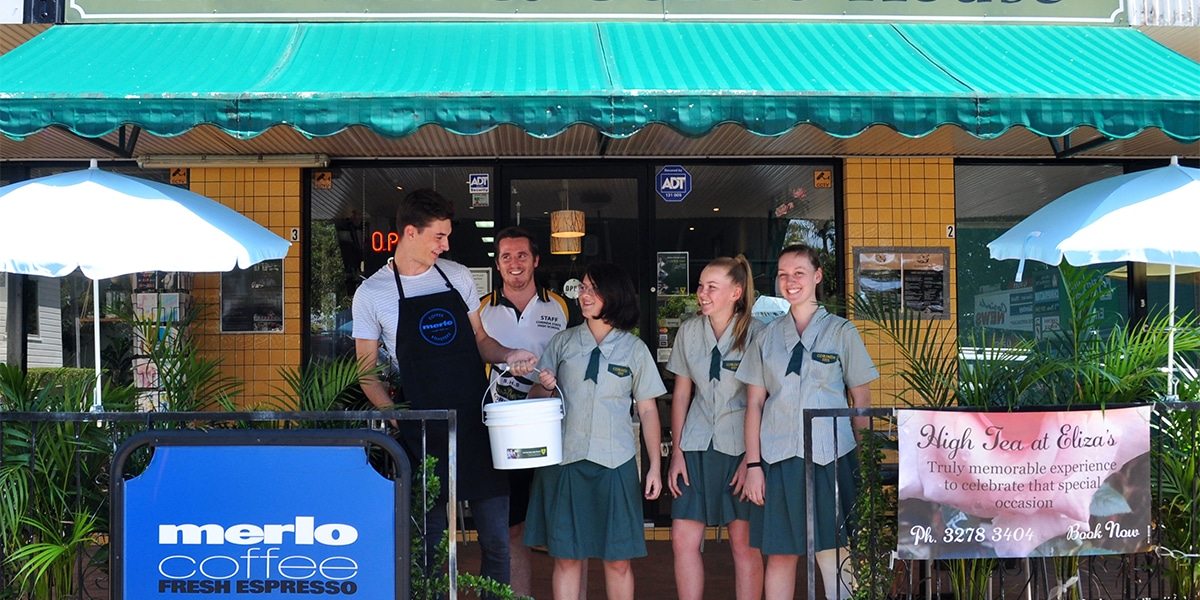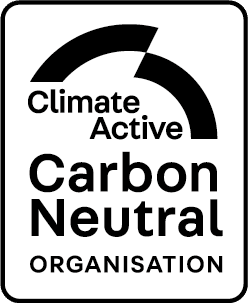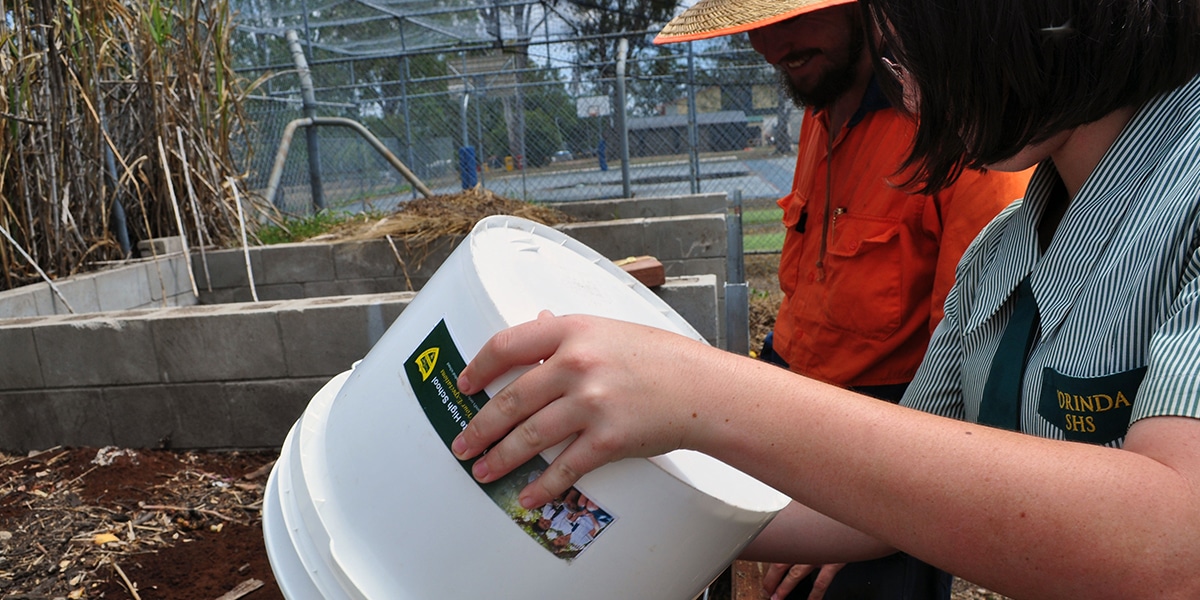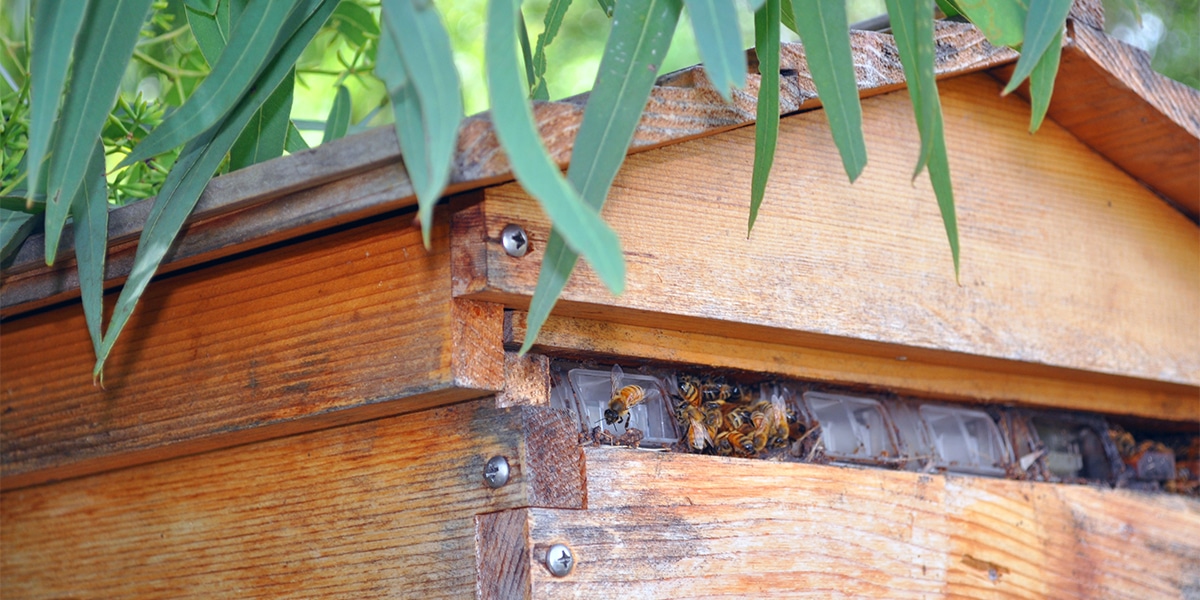The only certified carbon neutral secondary school in Australia

Teaching sustainability to our kids
Corinda State High is an independent secondary public school in the western suburbs of Brisbane. Corinda offers a holistic approach to education for its more than 1800 students, embracing academic and entrepreneurial excellence and innovation. The school also excels in environmental stewardship. It teaches the importance of sustainability to its students and is itself leading by example.
Currently, Corinda is the only Climate Active certified secondary school in Australia (formerly known as the National Carbon Offset Standard – NCOS)). This is not a one-time goal, there is a greater strategy. Corinda has a three-year plan to maintain the Australian Government Certification, including further reduction of greenhouse gas emissions by 5% each year. Students understand what it means to reduce their impact on the environment through step by step measures, and how to succeed with structures in place, an action plan, and a policy.
The school’s emissions reduction measures vary from standard energy efficiency and recycling practices, to hands-on activities such as weed control, composting and permaculture. There are many enjoyable activities for kids to do that also teach the lessons of sustainability.
Help with the carbon neutrality certification: choosing Pangolin Associates
 Corinda chose Pangolin Associates for the company’s extensive work in the area. Pangolin also offered unparalleled experience across many sectors and sizes of organisations, including schools and universities. Pangolin provided the carbon footprint, carbon credits services, and Climate Active project management, including the application development and submission processes.
Corinda chose Pangolin Associates for the company’s extensive work in the area. Pangolin also offered unparalleled experience across many sectors and sizes of organisations, including schools and universities. Pangolin provided the carbon footprint, carbon credits services, and Climate Active project management, including the application development and submission processes.
The school’s carbon footprint measured emissions in Scopes 1, 2, and 3. This included fuel, refrigerants, electricity, water, waste, IT equipment, cleaning, food catering and printing. Electricity was the largest source of emissions (444.3 tonnes CO2-e), followed by landfill waste (138.8 tonnes CO2-e), and employee commuting (99 tonnes CO2-e).


Less expected in the carbon inventory, however, was 1 cow, 2 calves, 20 sheep and an Alpaca – a Scope 1 emission responsible for 29.3 tonnes CO2-e.
Corinda’s overall emissions are perhaps larger than many schools due to its size and diversity. It is unique in its agricultural farm on site, which borders the Oxley River and Rocklea common land. Among many other activities, the farm has livestock, bees, poultry, and a 100% organic permaculture garden.
As a partner with local and state government, Corinda SHS offers a rich educational experience for its students: taking care of the environment for the ecological and the social benefits, and as a potential career path.
Corinda’s emissions reduction measures include:
- Implementing LED lighting, with plans to expand over time.
- Implementing a recycling and composting program.
- Harvesting water for school ovals and agricultural crops. Impressively Corinda has water tanks with a total capacity of 250,000 litres.
- Implementing water-saving measures such as dual flush toilets, now 90% of facilities on the grounds.
- Developing school market gardens.
- Selecting supplies with a lower footprint, such as FSC paper.
- Promoting sustainability beyond the school gates and in the community.
- Seeking partnership funding to offset emissions with certified carbon credits.
Three-year goal: achieving 15% reduction
Corinda plans to schedule lessons on good environmental practices, and continue to develop its sustainability policies. To reduce emissions, in future years Corinda will also move to renewable and more efficient use of energy. Electricity is the largest source of the school’s greenhouse gas emissions, so solar PV’s and green power are in the pipeline. Corinda will also upgrade another 20% of school lighting to energy efficient LED’s.
Video: Becoming Carbon Neutral (5:38)
Video: Graham Perrett, Federal Member for Moreton, Queensland (1:33)
MP Graham Perrett, congratulates Corinda State High School in parliament for the school’s carbon neutral certification.
Testimonial
 Becoming carbon neutral has been aspirational goals for the past 8 years and our school has struggled with measuring and reducing our emissions to achieve Carbon Neutral status. Working with Pangolin Associates has enabled us to bring together all our individual projects we have implemented as part of our broader goal and measure their contribution.
Becoming carbon neutral has been aspirational goals for the past 8 years and our school has struggled with measuring and reducing our emissions to achieve Carbon Neutral status. Working with Pangolin Associates has enabled us to bring together all our individual projects we have implemented as part of our broader goal and measure their contribution.
The expertise and guidance provided has been so valuable for our staff and students and through the support of Pangolin Associates our aspirations have become a reality and we have finally achieved our goal. We know maintaining our accreditation will be an ongoing challenge but we are confident that we can sustain this as we have highly qualified and professional coaching through Pangolin to assist us and support this important agenda in our school community. We could not have achieved this without the professional expertise of this organisation.
We are very proud to be the first school in Queensland to be accredited as Carbon Neutral and the only secondary educational institution in Australia to be accredited. Thank you, Pangolin for helping us achieve this.
Helen Jamieson, Corinda State High School Executive Principal
